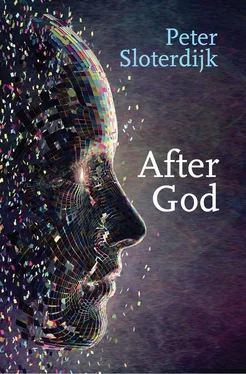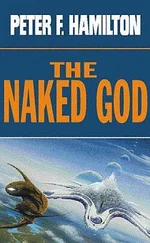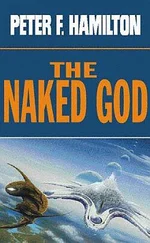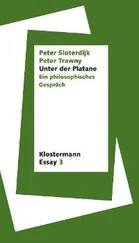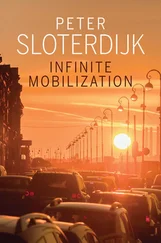Right from the beginning, four almost invincible groups stand against the few who have knowledge: the haughty, whose pride prevents them from gaining insight (given that insight cannot be gained without humiliation); those with entitlement, who want to persist in their received religio (given that knowledge is not possible without change); the miserable multitudes, whom everyday life has numbed into resignation to their shackles (given that they have not yet been awoken by the counter-resignation power of wonder); and the reserve army of the jealous, who lie in wait for their cue to bring everything down to their level.
*
From the perspective of the present day, we can hardly avoid noting that Jaspers’s doctrine of the axial age represents one of the last among the outsized confabulations that western historians of ideas and of religion have concocted to make sense of humanity’s past. The boldness of this epochal fairytale, as it comes from the pen of the newly appointed Basel professor, consists in the fact that he backdates the Enlightenment – which has advanced since the eighteenth century, along with the cockade of contemporary reason – to 2,500 years ago.
One can get an idea of the space-making effects of this maneuver once one realizes that it is now no longer necessary to be modern at all costs in order to take part in the Enlightenment. Not only did this maneuver create a freedom of movement for ecumenical exchanges, as they manifested themselves since then, in the dialogue between cultures. Above all, it lessened the fanatical tensions between the avant-garde of the European Enlightenment – whose voice has been raised ever since the seventeenth century – and the heritage conservationists, who reject any progress of questioning and testing that takes place beyond the preserved holdings. If the trial conducted by the light against the night already began two and a half millennia ago, then we should be able to recognize the bearers of the extended enlightenment above all by their evolutionary patience. The distinction between esotericism and exotericism, which, significantly, is as old as the high cultures, 10helps us be patient – or, in modern parlance, tolerant.
*
Doctor Martin Luther, who is often labeled a rebel, indeed a religious precursor of the Enlightenment, would in no way have been able to comprehend this wide-ranging construct of the philosopher Karl Jaspers; Luther would have indignantly put it to the side. Indeed, he would have rejected it as a dubious bow to the reason of unbelief. For it only examines cultures whose age indisputably precedes Christianity. So long as truth is to be allied with seniority, any attempt to assign a pre-Christian date to ways of approaching the highest insight – alias revelation – will remain suspect. Luther would have sensed in Jaspers’s theorem a fabrication from the spirit of humanist paganism, calculated to dissuade the person of the “now” time from worrying about the salvation of her soul. What is more, he would have rejected the concept of “culture” as a heretical suggestion. It expects Christianity to subordinate itself to the comparative study of worldviews and robs it of its character as the absolute “religion.”
Luther would have shuddered at the widespread and well-argued fact that, obviously, the “whore of reason” did not speak only through the immeasurably overrated Aristotle – that retrovirus of paganism inside corpus Christi , and the advocate of the unbearable thesis that human beings are able to display the virtue of magnanimity, megalopsuchia , through their own efforts. She also expressed herself through previously unknown figures with exotic names such as Confucius, Shankara, and Zarathustra. Even a familiar name such as Isaiah, who we believed was the first to prophesy the coming of the savior, would all of a sudden look like a colorful piece of cloth in the globalized whorehouse of reason.
*
Jaspers’s doctrine of the axial age rests on the offensive universalization of the supposition that “the human being” exists under permanent transcendent supervision. Like no philosophizing psychologist before him – Nietzsche excepted – this philosopher perceived the shift in mood that took place in the first millennium before Christ and continued to resonate throughout the religious actualities of the next two millennia. We can characterize the “axial age” not only by the more or less synchronous emergence of all-encompassing cosmologies and precursors of post-conventional ethics. There is more: the axial age distanced itself in the first place from everything that came before it. It did so by means of an unparalleled overshadowing of the existential moods of the time – to the point of a complete negation of world and life. We need not discuss here whether this incursion of a disgruntled mood was a reverberation of cosmic catastrophes like the Flood or an undesired aftereffect of the emergence of holy texts and promissory notes. In terms of the atmosphere of belief, it does not seem to be unproblematic when a god that allows himself to be paraphrased with the cipher JHWE threatens his “own” people more than eighty times, in writing, with obliteration. Alongside the risky predicate of “omnipotence,” the potential for total negations is also gathered in the Highest. In 1946, Jaspers noted: “We are guilty of being alive.” 11The tremor of the National Socialist catastrophe and the era of mass murders reverberate in this sentence. Yet it still belongs, undoubtedly, in the global resonance chamber of the disgruntled mood of the axial age.
At any rate, “high culture” refers to the epoch of growing anxiety about being touched. Whoever turns toward the One or to agathon [the Good], whoever strives for moksha [release from incarnations] and desires sanctification, must be in a position to rescind his membership in profane spheres. As long as the rays of the sun have not driven out the night, the adepts of purity do well to avoid entering impure precincts. The “world” is everything that the soul courting true knowledge keeps at a distance. In the future, wisdom and world contempt are to be unified by more than alliteration.
*
In order to trace the beginnings of the compulsion toward dissimulation, it is then necessary to trace the eccentrification of the human being back to the revolutions in the world picture that took place during the “axial age.” Hypocrisy is not merely vice’s bow to virtue, as La Rochefoucauld once remarked. Rather it marks the human being’s embarrassment about the omnipresence of a transcendent observer. It corresponds to the need not to be always seen. From this need emerge various strategies for circumventing unbearable scrutiny. Even the invention of the “unconscious” in the late eighteenth century belongs with the maneuvers of escaping an all too invasive scrutiny. The excessively observed human being is driven to hypocrisy the more she is held to the belief that the observer misses no detail, no matter how small. God, who is all eyes, surrounds me from without and vets me from within – all according to the Augustinian spatial schema of double transcendence: interior intimo meo, superior summo meo , “more inward to me than my most inward part, higher than my highest part.” 12
Accordingly, the establishment of the eccentric position of the human being on the stage of existence results from an internally fixated reaction to high cultures’ impositions of always being watched by an observer who can see through everything. The excesses of the Genevan city of God revealed just how far the attack of rigorous scrutiny on daily modes of life can go. The church of Calvin employed its own watchmen, spies, and executioners, in order to transform the city into a concentration camp of the elect.
Читать дальше
